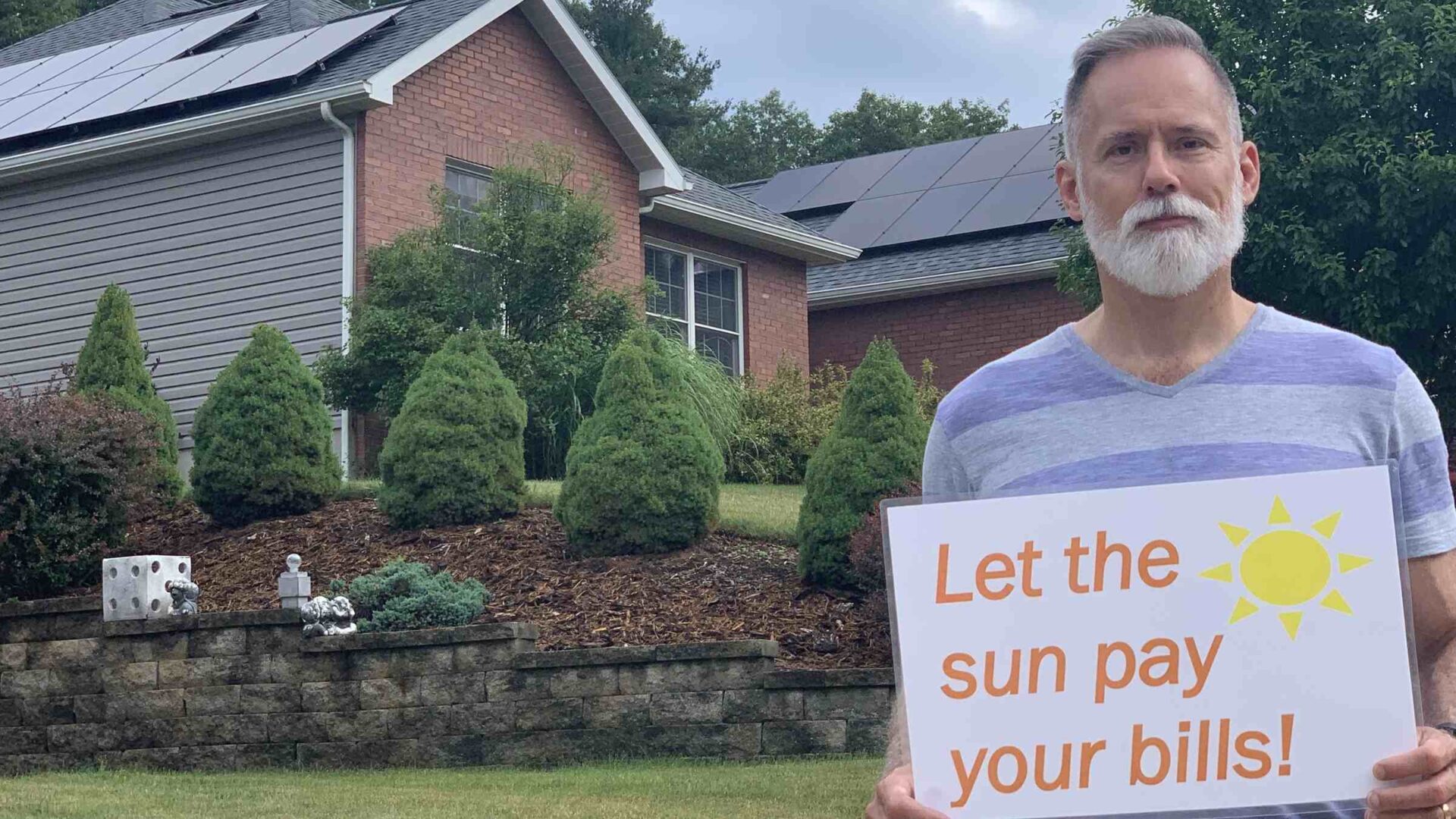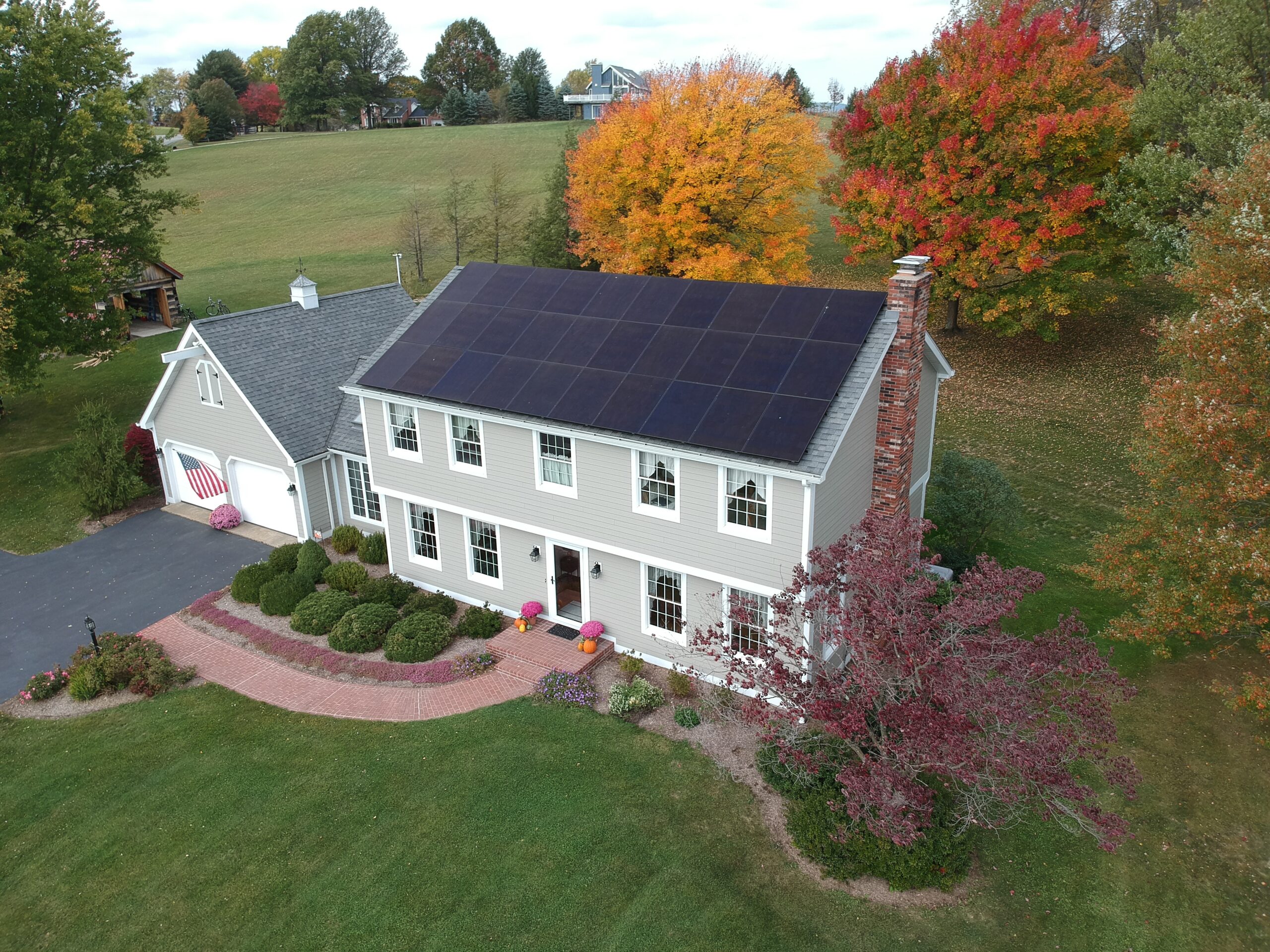Homeowners associations and solar access in Pennsylvania
- Factsheet

Homeowners associations (HOAs) and condominium associations (COAs) typically establish rules for a neighborhood’s aesthetic and sometimes attempt to restrict your ability to go solar. Unfortunately, Pennsylvania has no rules preventing HOAs from stopping you from going solar.
The rise of HOAs is a relatively recent phenomenon. According to the U.S. Census Bureau, more than 8 in 10 homes built in 2022 are in an HOA. Associations have grown in popularity in part as a way for communities to self-finance road repairs. Homeowners that move into properties that are part of an Association become members, and often pay dues to the Association. According to the Community Associations Institute, HOA funds generally pay for trash pick-up, plowing services, and other street maintenance.
A primary reason Associations exist is to ensure that homes retain their value. HOAs are run by a Board and committees and can oversee property changes for which members are required to apply. The people who make up an Architectural Review Board, for example, are members of the Association and may not have any relevant technical background or expertise related to architecture or home renovations.

3 Reasons HOAs reject solar applications
In Pennsylvania, Associations frequently reject solar applications. There are a few reasons why an HOA might not allow a homeowner to go solar on their own property, including:
- The Board or Committee reviewing your application is misinformed about solar. They may believe it will decrease property value for you or your neighbors, it’s a fire hazard, or they’re worried about glare off of the panels.
- The Board or Committee may be worried that your neighbors will hate your solar installation, and don’t want to have to field angry messages later.
- Some people think solar installations ruin the aesthetic of the neighborhood.
Tips for applying for solar in HOAs
There are several tactics homeowners have successfully used to make the case for going solar with their HOA.
- Always try to personalize your approach, based on the relationships you have with your neighbors and HOA members.
- Develop relationships with your Board and the Architectural Committee, whether in person or on social media. Try to be on friendly terms and give them a face to go with a name.
- Develop relationships with your neighbors. Talk to the people who can see the south-facing part of your roof. Tell them why you want to go solar and ask them their opinion on the subject. If any say that they have thought about going solar, write that down — you might be able to share that information with your Board to indicate broad support for solar.
- If possible, take an informal poll of neighbors who your solar installation would directly impact and include that in your application. This will help prove to your Board that they won’t be forced to field angry phone calls after you install solar panels.
- If the Board or Committee is misinformed about solar, offer to have your installer speak with them. They can convey supportive information to the Board. Specifically, HOAs often have concerns about solar being a fire hazard, causing glare, or decreasing property values. Be ready to provide accurate information as part of your application to head off any disputes before they happen.
- It may be helpful to remind the Board or Committee that two national studies (Lawrence Berkeley National Laboratory and Zillow) found solar increases the value of a home, which is a win for the neighborhood. It is always a good idea to sell solar as a win-win and demonstrate that the HOA could benefit from a solar movement (or at least won’t lose anything).
Helpful Resources
- Our HOA Solar Action Guide
- Example bylaws from an Association that allows solar
- Principles for Association Boards to consider when drafting their guiding documents
Take action
Explore the ways you can help Pennsylvania go solar.
Get the latest on solar straight to your inbox.
Fight for your solar rights.
Everyone has the right to go solar. Spread the sunshine nationwide and in your local community by taking action, joining events, and more.